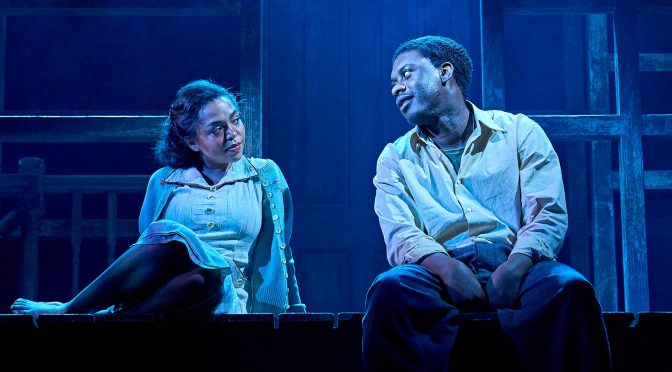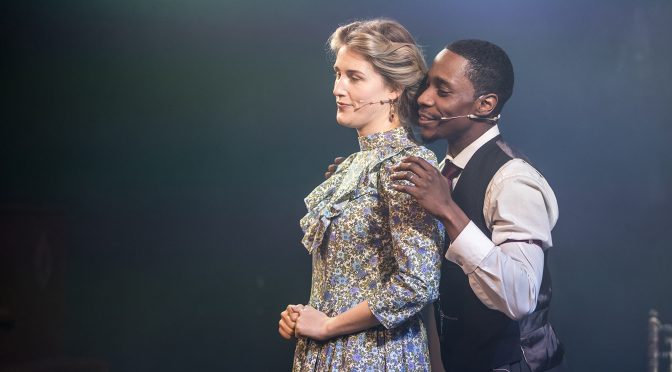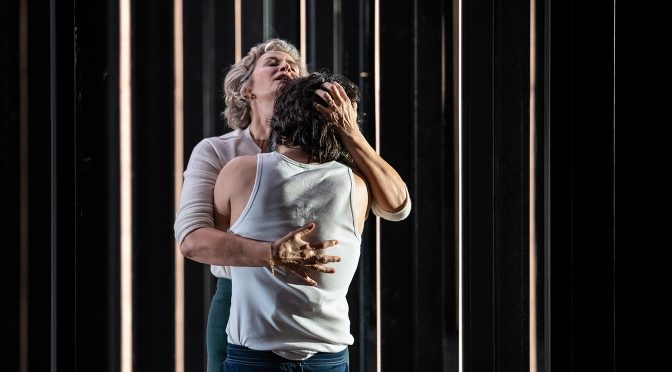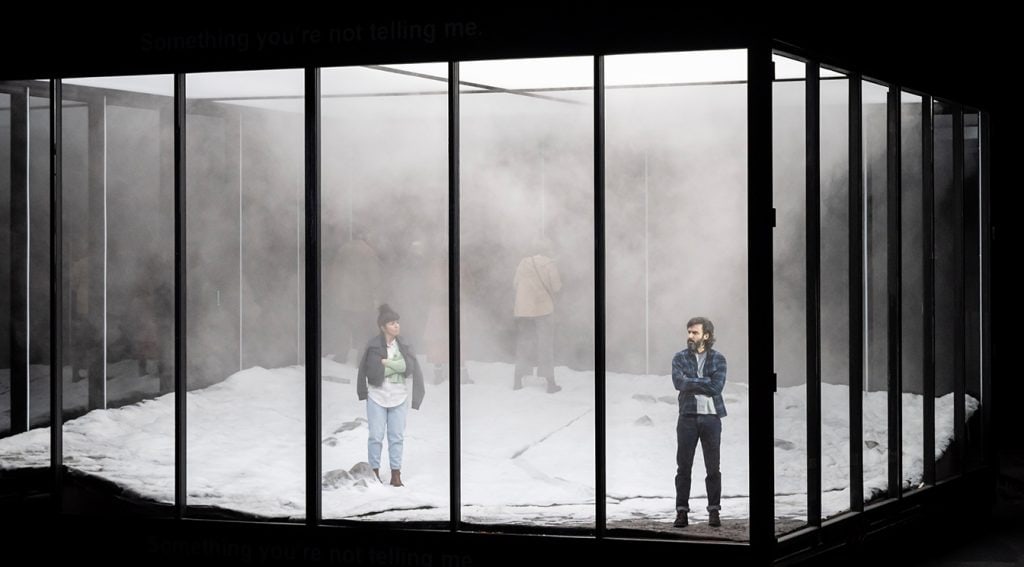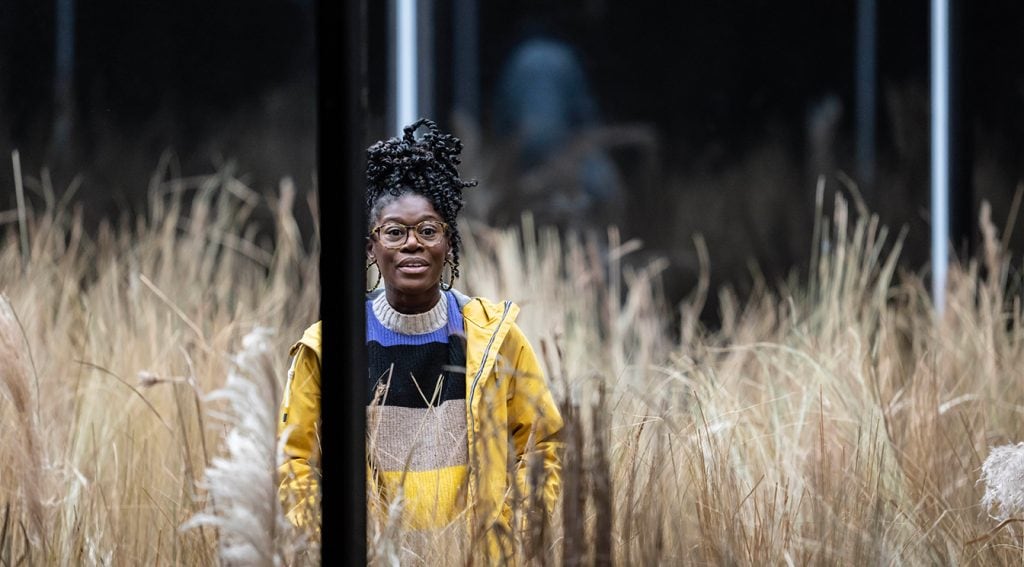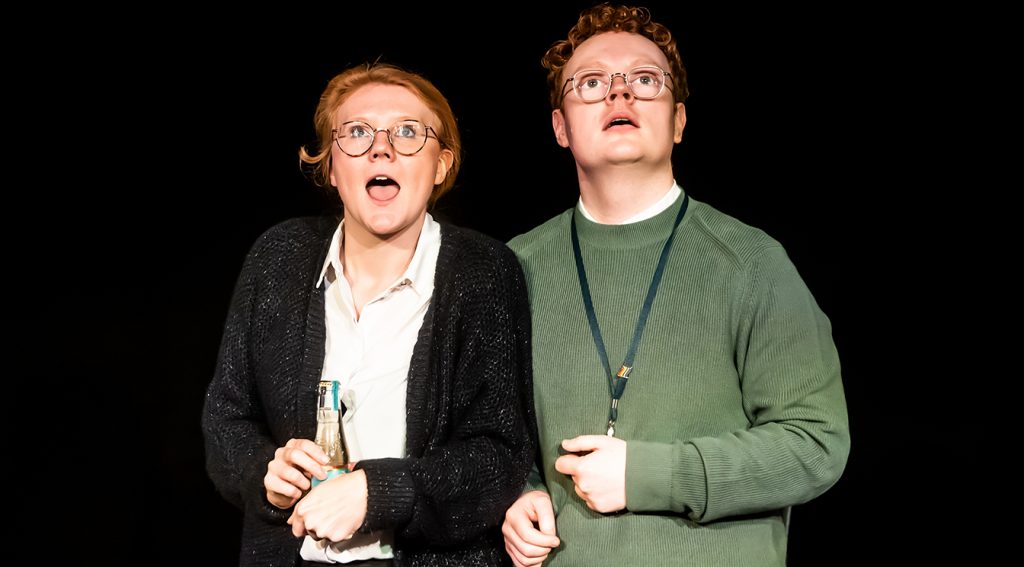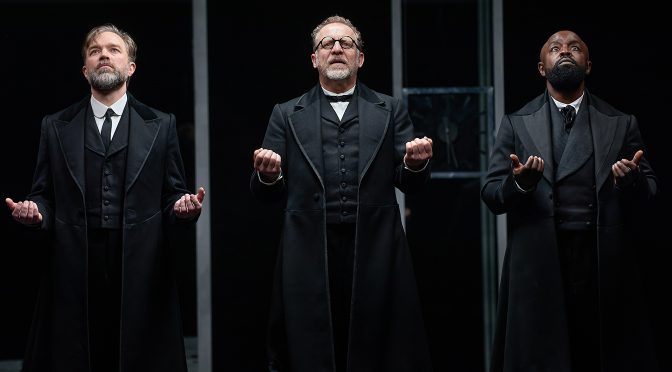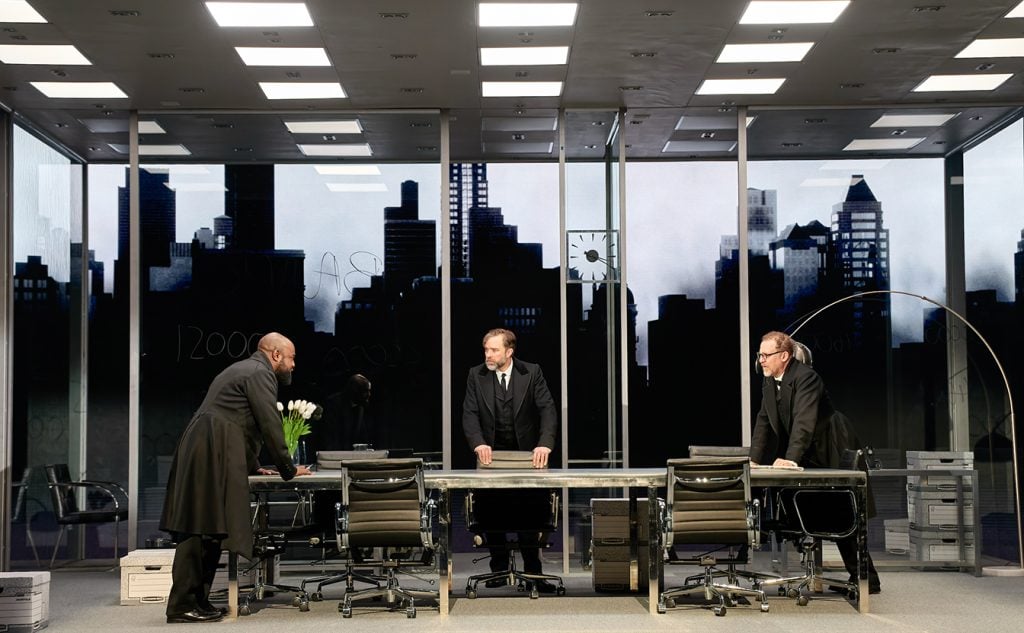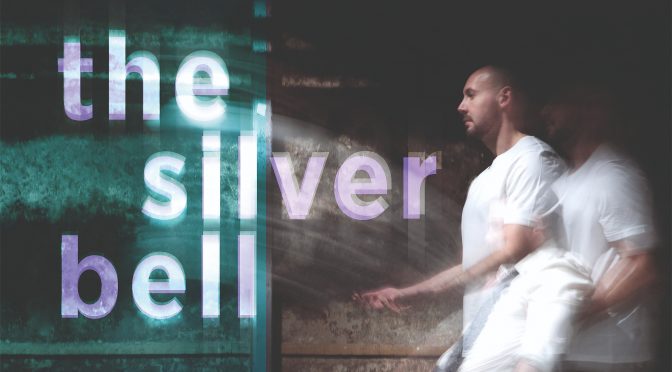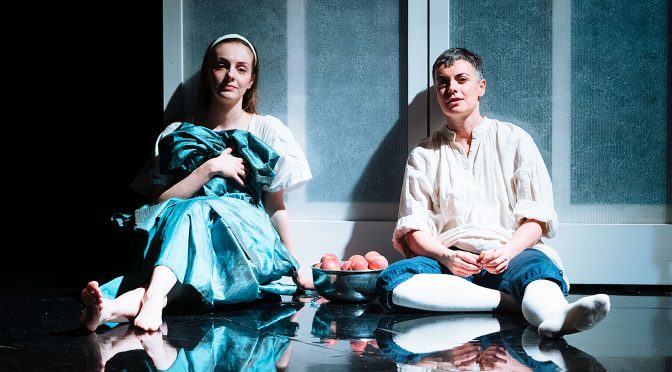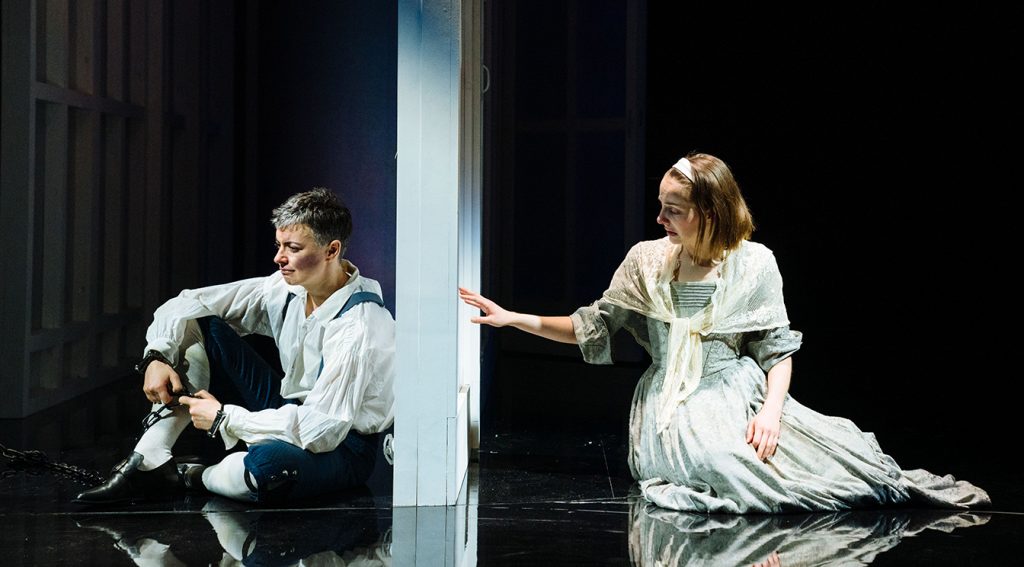This show from (Sic) Theatre, conceived by Jeffrey Miller, skilfully tackles the important and emotive subject of racism and police violence towards African Americans. A verbatim piece, which draws on a variety of sources, Maud is my first five-star show from this year’s excellent Vault Festival.
The focus is the tragedy of Ahmaud ‘Maud’ Arbery, who was shot while out jogging on 23 February 2020. Attention and detail are paid to this story through re-enacting police interviews, some of the court case and his family’s statements. Alongside the performances are real-life voiceovers and projected film footage. The video design, by Roberto Esquenazi Alkabes, is accomplished. The events are disturbing, but the tone is calm – director Andrew French leaves the audience to be appalled by itself.
A quest for justice for Arbery is interspersed with talk shows and historic debate. There’s outrage in TV studios and, a real highlight, a section of James Baldwin’s debate with William F Buckley in Cambridge in 1965. Along with scenes of protest and an appearance from President Trump, Maud focuses minds on the systemic nature of racism and makes the case for its subtitle that what happened to Arbery was a modern-day lynching.
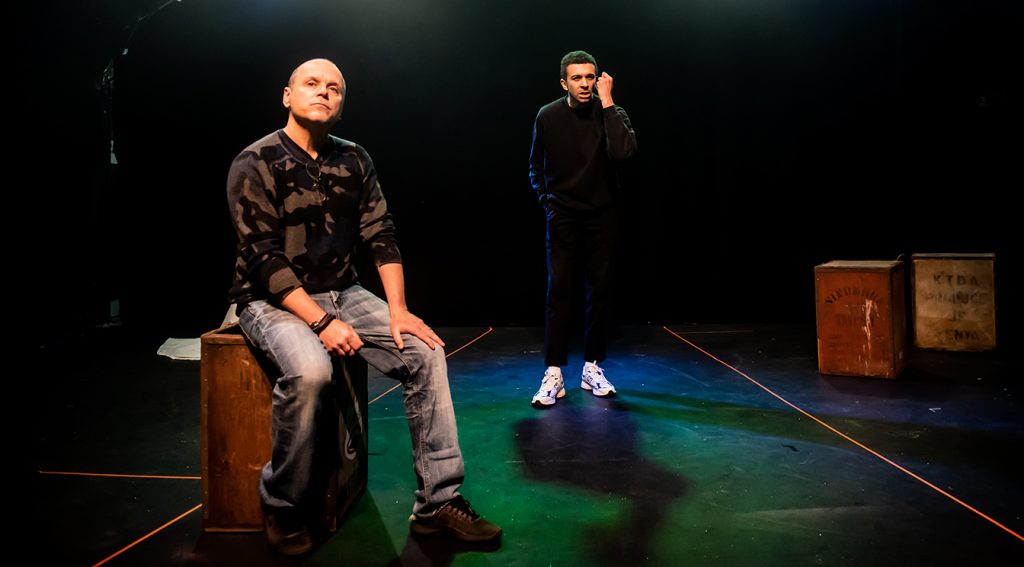
The show boasts two excellent performances. Miller and Perry Williams take on all the roles and flip between them with ease, using the space with assurance and switching emotions with skill. Care is taken over each role, however difficult or distasteful.
The performers also watch and listen – like the audience – to the material taken from real life. The respect and attention in such moments is theatrically powerful but also indicative of the care shown throughout the whole piece, ensuring the subject has the gravity and import it deserves.
Until 25 February 2023
Photo by Lidia Crisafulli


